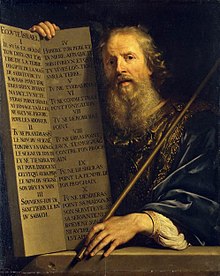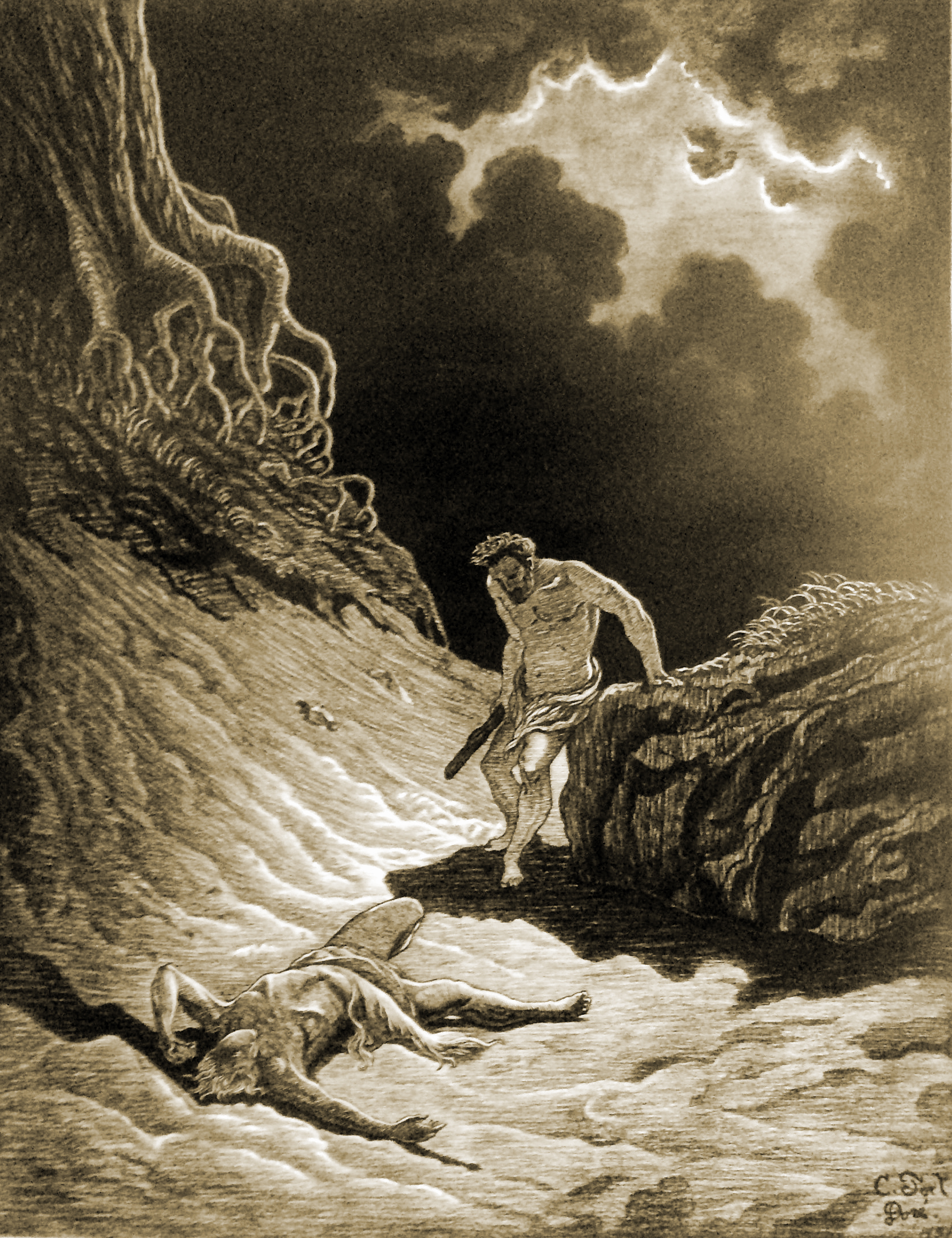The following is excerpted from Albert Schweitzer’s The Quest of the Historical Jesus, published in 1906: a scholarly yet readable introduction to the field of New Testament studies from a modern viewpoint. Schweitzer’s seventh chapter is titled “David Friedrich Strauss – The Man And His Fate”:
 In order to understand Strauss one must love him. he was not the greatest, and not the deepest, of theologians, but he was the most absolutely sincere. His insight and his errors were alike the insight and the errors of a prophet. And he had a prophet’s fate. Disappointment and suffering gave his life its consecration. It unrolls itself before us like a tragedy, in which, in the end, the gloom is lightened by the mild radiance which shines forth from the nobility of the sufferer.
In order to understand Strauss one must love him. he was not the greatest, and not the deepest, of theologians, but he was the most absolutely sincere. His insight and his errors were alike the insight and the errors of a prophet. And he had a prophet’s fate. Disappointment and suffering gave his life its consecration. It unrolls itself before us like a tragedy, in which, in the end, the gloom is lightened by the mild radiance which shines forth from the nobility of the sufferer.
After being for a short time Deputy-professor at Maulbronn, he took his doctor’s degree with a dissertation on the apokatastasis (restoration of all things. Acts iii. 21). This work is lost. From his letters it appears that he treated the subject chiefly from the religious-historical point of view.
In October 1831 he went to Berlin to hear Hegel and Schleiermacher. On the 14th of November Hegel, whom he had visited shortly before, was carried off by cholera. Strauss heard the news in Schleiermacher’s house, from Schleiermacher himself, and is said to have exclaimed, with a certain want of tact, considering who his informant was: “And it was to hear him that I came to Berlin!”
Strauss felt himself called upon to come forward as an apostle of Hegel, and lectured upon Hegel’s logic with tremendous success. “In my theology,” he writes in a letter of 1833, “philosophy occupies such a predominant position that my theological views can only be worked out to completeness by means of a more thorough study of philosophy, and this course of study I am now going to prosecute uninterruptedly and without concerning myself whether it leads me back to theology or not.” Further on he says: “If I know myself rightly, my position in regard to theology is that what interests me in theology causes offence, and what does not cause offence is indifferent to me. For this reason I have refrained from delivering lectures on theology.”
Considering its character, the work was rapidly produced. He wrote it sitting at the window of the Repetents’ room, which looks out upon the gateway-arch. When its two volumes appeared in 1835 the name of the author was wholly unknown, except for some critical studies upon the Gospels. This book, into which he had poured his youthful enthusiasm, rendered him famous in a moment—and utterly destroyed his prospects. Among his opponents the most prominent was Steudel, a member of the theological faculty, who, as president of the Stift, made representations against him to the Ministry, and succeeded in securing his removal from the post of “Repetent.” The hopes which Strauss had placed upon his friends were disappointed. Only two or three at most dared to publish anything in his defence.
Towards the end of the ’thirties he became conscious of a growing impulse towards more positive views. The criticisms of his opponents had made some impression upon him. The second volume of polemics was laid aside. In its place appeared the third edition of the Life of Jesus, 1838-1839, containing a series of amazing concessions. These inconsistencies he removed in the next edition, acknowledging that he did not know how he could so have temporarily vacillated in his point of view.
For a moment it seemed as though his rehabilitation would be accomplished. In January 1839 the noble-minded Hitzig succeeded in getting him appointed to the vacant chair of dogmatics in Zurich. But the orthodox and pietist parties protested so vehemently that the Government was obliged to revoke the appointment. Strauss was pensioned off, without ever entering on his office.
About that time his mother died. In 1841 he lost his father. When the estate came to be settled up, it was found that his affairs were in a less unsatisfactory condition than had been feared. Strauss was secure against want. The success of his second great work, his Christian Theology (published in 1840-41), compensated him for his disappointment at Zurich. In conception it is perhaps even greater than the Life of Jesus; and in depth of thought it is to be classed with the most important contributions to theology. In spite of that it never attracted so much attention as the earlier work. Strauss continued to be known as the author of the Life of Jesus. Any further ground of offence which he might give was regarded as quite subsidiary.
And the book contains matter for offence in no common degree. At the end of the second volume, where battle is joined on the issue of personal immortality, all these ideas play their part in the struggle. Personal immortality is finally rejected in every form. It is not the application of the mythological explanation to the Gospel history which irrevocably divides Strauss from the theologians, but the question of personal immortality.
At the very time when Strauss was beginning to breathe freely once more, had turned his back upon all attempts at compromise, and reconciled himself to giving up teaching; and when, after settling his father’s affairs, he had the certainty of being secure against penury; at that very time he sowed for himself the seeds of a new, immitigable suffering by his marriage with Agnese Schebest, the famous singer. After some years they procured a divorce, custody of the children being assigned to the father. The lady took up her residence in Stuttgart, and Strauss paid her an allowance up to her death in 1870.
What he suffered may be read between the lines in the passage in The Old Faith and the New where he speaks of the sacredness of marriage and the admissibility of divorce. The wound bled inwardly. His mental powers were disabled. At this time he wrote little. Only in the apologue “Julian the Apostate, or the Romanticist on the throne of the Caesars”—that brilliant satire upon Frederic William IV, written in 1847—is there a flash of the old spirit.
He had no practice in speaking without manuscript, and cut a poor figure as a debater. When, subsequently, the President of the Chamber called him to order for asserting that a previous speaker had “concealed by sleight of hand” (wegeskamotiert, “juggled away”) an important point in the debate, he refused to accept the vote of censure, resigned his membership, and ceased to attend the diets. As he himself put it, he “jumped out of the boat.” Then began a period of restless wandering, during which he beguiled his time with literary work. He wrote, inter alia, upon Lessing, Hutten, and Reimarus, rediscovering the last-named for his fellow-countrymen.
At the end of the ’sixties he returned once more to theology. His Life of Jesus adapted for the German People appeared in 1864. In the preface he refers to Renan, and freely acknowledges the great merits of his work.
His last work, The Old Faith and the New, appeared in 1872. Once more, as in the work on theology published in 1840-1841, he puts to himself the question. What is there of permanence in this artificial compound of theology and philosophy, faith and thought? But he puts the question with a certain bitterness, and shows himself too much under the influence of Darwinism, by which his mind was at that time dominated. The Hegelian system of thought, which served as a firm basis for the work of 1840, has fallen in ruins. Strauss is alone with his own thoughts, endeavouring to raise himself above the new scientific worldview. His powers of thought, never, for all his critical acumen, strong on the creative side, and now impaired by age, were unequal to the task. There is no force and no greatness in the book.
To the question, “Are we still Christians?” he answers, “No.” But to his second question, “Have we still a religion?” he is prepared to give an affirmative answer, if the assumption is granted that the feeling of dependence, of self-surrender, of inner freedom, which has sprung from the pantheistic world-view, can be called religion. It was a dead book, in spite of the many editions which it went through, and the battle which raged over it was, like the fiercest of the Homeric battles, a combat over the dead.
The theologians declared Strauss bankrupt, and felt themselves rich because they had made sure of not being ruined by a similar unimaginative honesty. Friedrich Nietzsche, from the height of his would-be Schopenhauerian pessimism, mocked at the fallen hero.
Before the year was out Strauss began to suffer from an internal ulcer. For many months he bore his sufferings with quiet resignation and inner serenity, until on the 8th of February 1874, in his native town of Ludwigsburg, death set him free.
He was buried on a stormy February day.









